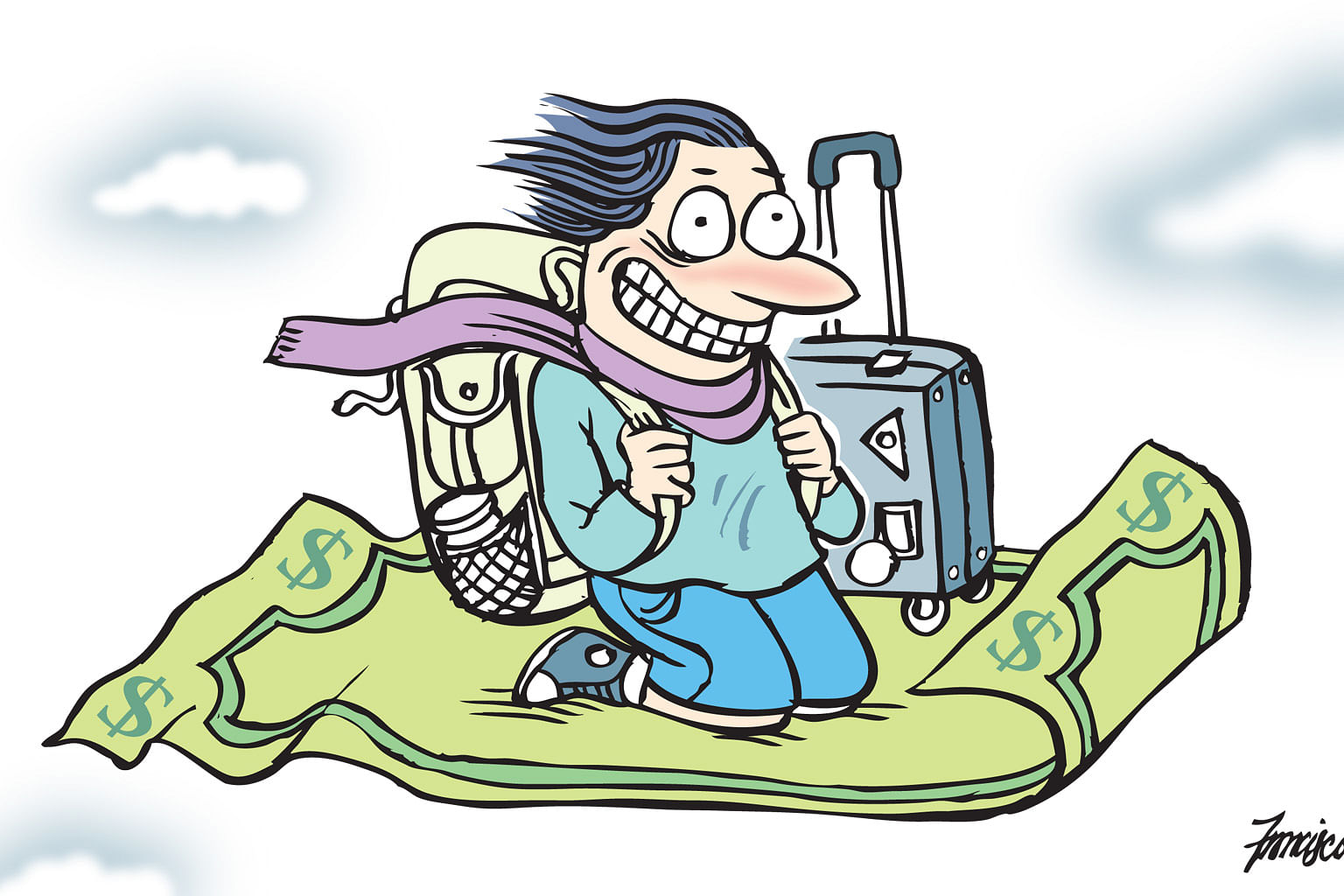Ask anyone around you if they would like to go on a holiday and you are more than likely to receive an answer which ends in the unoriginal Singaporean refrain - "no money lah".
I recently discovered how synonymous holiday getaways have become with hefty price tags when my colleagues responded with sheer astonishment at my feat of going on a nine-day holiday in Taipei and Taichung for a grand total of $800.
Contrary to popular belief, however, inexpensive travel options are not myths.
In fact, unless you (or your spouse) happen to possess unfortunate shopaholic tendencies, cheap trips abroad are absolutely achievable. Here's how I managed it.
The cost of accommodation abroad and the airfare, easily the two largest expenses incurred on any trip, can be brought down to a minimum with some prior planning.
In order to get a good price on airfares, I monitored the websites of budget airlines, including Tigerair, Jetstar, AirAsia and Scoot, for deals to Taiwan.

Websites such as Skyscanner can locate cheap flights as well, although they may not always be updated with the best deals.
Booking the flight well in advance should secure a return flight for around $200 to $300, although you will have to be prepared to plan your itinerary early and possibly transit at other airports.
For accommodation, hospitality platforms such as Airbnb, Trivago and Agoda allow travellers to choose options most suited to their budgets and itineraries.
Even in popular districts such as Ximending in Taiwan or Shibuya in Tokyo, apartments large enough for four people can be rented for around $100 a night on Agoda and Airbnb, which comes to about $25 per person.
This means that the accommodation cost for a six-day trip to Tokyo can be equivalent to, or even less than, a single night's stay in Singapore at a mid-tier hotel.
While cheaper accommodation might mean you probably will not have a large, spacious apartment with room service, it allows you to save money while having a comfortable place in prime locations to rest your head.
Planning ahead and booking accommodation options early on the hospitality platforms will likely help to keep costs down too.
Apart from airfare and accommodation, transport costs will likely be a significant expense.
To save money, it is important to find out how public transport works in the country you are visiting, as it is usually the cheapest option.
The homework is especially important if there is a language barrier between the locals and yourself.
For my trip to Taiwan, my friends and I quickly realised that taking the high-speed rail or taxis from city to city would be too expensive, so we decided to travel by bus and train instead.
While this meant a lot of time was spent on the move, we were able to save up to $200 on transport, spending only a total of about $100 on sleepy bus rides and train commutes.
Some research into the area will also help to keep food bills affordable by shedding light on the must-eat delicacies as well as the stalls that offer them at the lowest prices.
In Taiwan, despite bingeing on fried chicken cutlets and papaya milk every night, I managed to keep my spending on food below $200.
That said, the cost of living may differ significantly from country to country (a full meal in London will cost you many times more than one in Thailand), so some research will help you come up with a realistic food budget.
With all the essentials covered, the rest of your budget can now be spent on spicing up your itinerary.
Many tourist attractions abroad, from museums to nature reserves and national parks, charge entrance fees, so it is important to keep that in mind as you budget for your trip.
For the sake of adding some colour to our holiday, my friends and I decided to go whale watching.
Although no whales were encountered throughout the entire three-hour boat ride, the experience included endless tricks around the boat by schools of pan-tropical spotted dolphins as well as large sunfish feeding near the ocean's surface, which I thought was a pretty good deal for $30.
In addition, the holiday also included exploring different parts of Taichung as well as Taipei, such as the scenic Taroko National Park.
This goes to show that budget travelling does not need to exclude you from interesting attractions, comfortable lodging and good food.
In fact, with so many cost-saving options available via the Internet today, all it takes is a little research to keep the expense of an exciting getaway down.
So, now that you know how to do it: Australia for $1,200, anyone?
Planning ahead and booking accommodation options early on the hospitality platforms will likely help to keep costs down too. Apart from airfare and accommodation, transport costs will likely be a significant expense.

